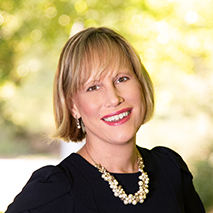Industry-Specific Bookkeeping for Your SaaS Company
Take your SaaS company to the next level with professional bookkeeping. Learn how you can lower your tax burden and always be investor-ready.
If you’re the leader of a software-as-a-service (SaaS) company, you know the value of innovation to stay competitive. Did you know that a strong financial foundation can give you the edge you’ve been looking for? With professional, industry-specific bookkeeping you can take your company to the next level by maximizing your R&D tax credits — and prepare for investors with audit-ready financials.
Here’s what you need to know.
Easily Maximize Your R&D Tax Credits
Because research and development of tangible consumer products ranging from appliances to automobiles requires both building stuff and breaking stuff, it’s obvious that companies in those industries should be entitled to write off a significant portion of those costs.
The build-it-and-break-it phase at SaaS companies may be less obvious, but it’s no less important. It’s so important, in fact, that an act of Congress (Protecting Americans from Tax Hikes, or PATH, passed in 2015) created permanent provisions for R&D tax credits to encourage ongoing technology development.
Best of all, the PATH provisions are retroactive. So even if you weren’t aware that you could claim R&D tax credits until now, you can go back and amend your returns for the past three years to take advantage of those sunk development costs.
Understanding which expenses qualify for the tax credit and knowing what documentation you’ll need is difficult. You can empower your company to easily claim R&D tax credits by working with your CPA and bookkeeping services provider to establish a system for identifying and tracking qualifying expenses from the get-go.
Always Be Investor-Ready
Even if you’re not currently planning to sell your business, you’ll want to follow generally accepted accounting principles (GAAP) — in particular, Accounting Standards Codification (ASC) 606 to make your firm more attractive to investors and prospective buyers if you ever do decide to sell.
Why? For one thing, before venture capitalists or financial institutions invest in a company, they want to be assured the company follows accounting and bookkeeping best practices. That’s where ASC 606 comes in. The American Institute of Certified Public Accountants issued guidance to be sure that companies adhere to standardized methods of revenue recognition.
If your SaaS firm collects fees in advance for software subscriptions, you’ll want to properly defer that revenue for tax purposes using the accrual method. What is deferred revenue? It is income you receive before you’ve technically earned it. With subscription-based services, you receive payment in advance of supplying the services.
When you use accrual-based accounting, the financial documents will clearly state the amount of services owed to customers, so the investor can identify services they would be contractually obligated to deliver, and evaluate their ability or willingness to do so.
And following ASC 606 isn’t just helpful for investors — it will help you clearly see what you’ll need to do to fulfill your obligations to your customers. For example, will you need more materials or staff to supply the services you’ll need to deliver?
Be Prepared With Professional Bookkeeping
Don’t wait until you’re ready to sell to bring in professional bookkeeping services. Your bookkeeping services provider can establish bookkeeping processes that help ensure your SaaS company’s records are thorough and accurate — and provide the financial insight you need now to run a successful business.
At Supporting Strategies, our experienced, U.S.-based professionals use secure, best-of-breed technology and a proven process to provide a full suite of bookkeeping and controller services. Are you ready to learn how you can move your business forward? Contact Supporting Strategies today.












Leave a Reply
Want to join the discussion?Feel free to contribute!